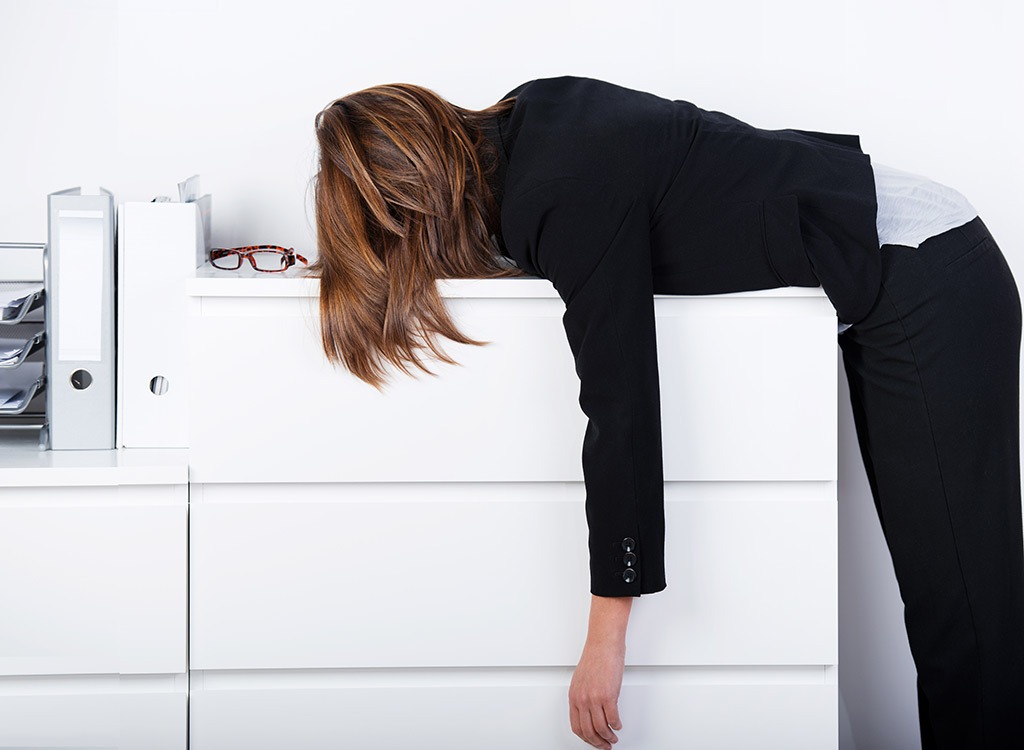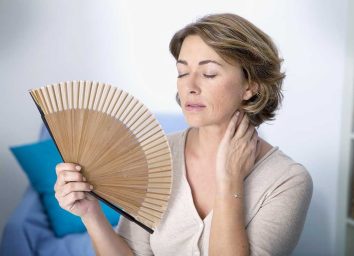There’s A Reason Why Many Women Over 40 Aren’t Sleeping Enough

Mood swings and hot flashes are just two of the common signs you’re going through menopause, but no one really talks too much about the lesser-known—yet equally as aggravating—side effects, like lack of sleep.
It turns out that over 25 percent of women between the ages of 40 and 59 have trouble falling and staying asleep on four or more nights during the week, while 35 percent of women reported getting less than seven hours of shut-eye hours per night, according to a newly published analysis by the National Center for Health Statistics.
Researchers came to these findings by studying data from 2,852 non-pregnant 40–59-year-old women who were involved in the 2015 National Health Interview Survey. “These findings support previous research that indicates that difficulty sleeping is a major symptom of the menopausal transition,” Natalie Dautovich, assistant professor of counseling psychology at Virginia Commonwealth University and Environmental Fellow at the National Sleep Foundation told CNN via email. “In fact, according to the findings, more than half of women undergoing the transition are not meeting the recommended sleep requirements of 7 to 9 hours per night.”
Besides chalking up disrupted sleep to increased stress, vasomotor symptoms like night sweats, and other biological and environmental factors, Dr. Alon Avidan, professor and vice chair of the UCLA Department of Neurology at UCLA and director of the UCLA Sleep Disorders Center also stresses hormonal fluctuations as a focal culprit. “During this period, there is marked decrease of estrogen and progesterone secretion by the ovaries, associated with several other physical, physiological and psychological changes that directly influences sleep,” Avidan explained. “Progesterone protects younger women from sleep apnea and snoring and this is lost after menopause. Decreases in progesterone levels can cause disturbed sleep as progesterone has both hypnotic and stress-relieving effects.”
Now that we know what may be causing your midlife sleep crisis, here are some tried-and-true ways to remedy them.
Top Tips For Better Sleep

Eat This!
“Any tryptophan-containing food, which includes nuts, chicken, fish, lentils, and eggs, can help usher in sleepyhead syndrome,” Julia Falamas, director of programming and operations at Epic Hybrid Training, explains. “If you’re the type who can’t sleep on a empty stomach, a healthy source of fat like avocado or nut butters can help stave off hunger, while providing restorative properties,” she adds. There’s only one thing to watch out for when you’re munching: “Make sure it’s in moderation and fits within your daily caloric needs.”
Put That Tea Pot To Use
Brewing tea isn’t only a sure-fire way to boost your metabolism, it’s also a solid way to prepare you for bedtime. “There is something about the ritual of sitting down to a soothing cup of tea that tells your brain to slow down and relax,” Falamas admits. “Some of the best teas for sleep are chamomile, peppermint, lavender and valerian, which actually does have some sedative properties.” Tea time, anyone?
Blend A Protein Shake
Sipping on a protein shake shouldn’t be solely confined to your post-workout game plan. “A protein powder containing micellar casein takes longer to break down and makes for a good pre-bed protein option, as your body can use the protein the entire time you’re sleeping,” says Falamas. In need of some straw-worthy recipes? Snoop through our 23 Best Protein Shake Recipes for some inspo.








